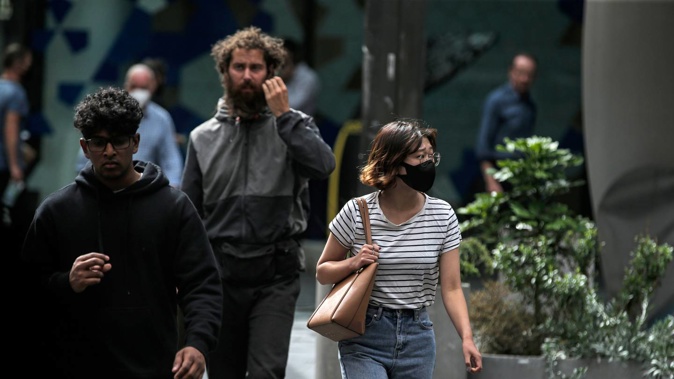
The Ministry of Health is today reporting that in the last week there were 16,399 new Covid cases in the community.
The ministry also reported a further 41 deaths, including one person aged between 10 and 19.
One was in their 30s, two were in their 40s, one was in their 50s, five were in their 60s, seven were in their 70s, 19 were in their 80s and five were aged over 90.
As of midnight on Sunday, 243 people were in hospital with the virus, including six in intensive care.
Of the deaths reported this week, three were from Northland, 16 were from Auckland region, two were from Waikato, one was from Tairawhiti, two were from Taranaki, four were from MidCentral, two were from Wellington region, two were from Nelson Marlborough, five were from Canterbury, four were from Southern.
The seven-day rolling average of community cases has increased to 2343 and the average for deaths also increased to four.
Of today's cases, 1727 were reinfections.
Covid-19 is on the rise again in New Zealand and experts are keeping an eye on two new strains, one of which has been dubbed a nightmare.
The subvariant BQ.1.1 has been detected in the wastewater in several regions since it was first identified earlier this month, while the XBB variant has been recorded twice.
This comes as the first cruise ship to return to Napier and Wellington in two and a half years has Covid-19 cases on board.
The Ovation of the Seas was carrying about 4500 passengers and crew when it arrived in Napier Port on Monday morning from Tahiti.
Hawke's Bay Today revealed that the ship had been dealing with Covid cases, although the ship's operator, Royal Caribbean, and health authorities are not revealing how many.
Te Whatu Ora Te Matau a Māui, the former Hawke's Bay District Health Board which determines if cruise ship passengers are allowed to disembark, says the ship met its requirements for passengers to disembark into Napier.
Medical officer of health Dr Bridget Wilson said she was "confident that Covid-19 cases [on the ship] are being isolated appropriately and their contacts managed in line with our current domestic settings".
Meanwhile, Western Auckland, Rotorua and Porirua have all had BQ.1.1 in the wastewater but no XBB has been detected in samples yet.
XBB, dubbed the "Nightmare variant" in Singapore, where it has been credited with a sharp increase in infection, is a recombinant variant – meaning two different viruses have infected one person and then spliced together to create a third.
The Washington Post reports that XBB appears to be the best at evading immunity, and researchers in China have found that XBB can elude the protective antibodies generated by a breakthrough BA.5 infection, raising concern that booster vaccines engineered to target the BA.4 and BA.5 versions of Omicron may be quickly outpaced.
According to initial research, BQ.1.1 has a growth advantage relative to BA.5, the dominant variant currently circulating in New Zealand.
"At this stage, there is no evidence that BQ.1.1 is driving an increase in cases but Manatū Hauora - the Ministry of Health, and Te Whatu Ora – Health New Zealand, alongside ESR, are closely monitoring the development of Covid-19 subvariants overseas and in New Zealand, including BQ.1.1.
In an earlier report, epidemiologist Michael Baker said a return to some kind of alert level system could help avoid the worst in future Covid-19 waves.
"We've already been through two big Omicron waves this year," in March with BA.1 and BA.2 and July with BA.5, he said.
"Each of these waves saw large numbers of cases, hospitalisations and deaths.
"If we see another wave rising, which seems very likely, and whether it's BQ.1.1 or one of the other subvariants that are starting to become dominant, we're going to see more cases and all the things that go with that."
Take your Radio, Podcasts and Music with you









